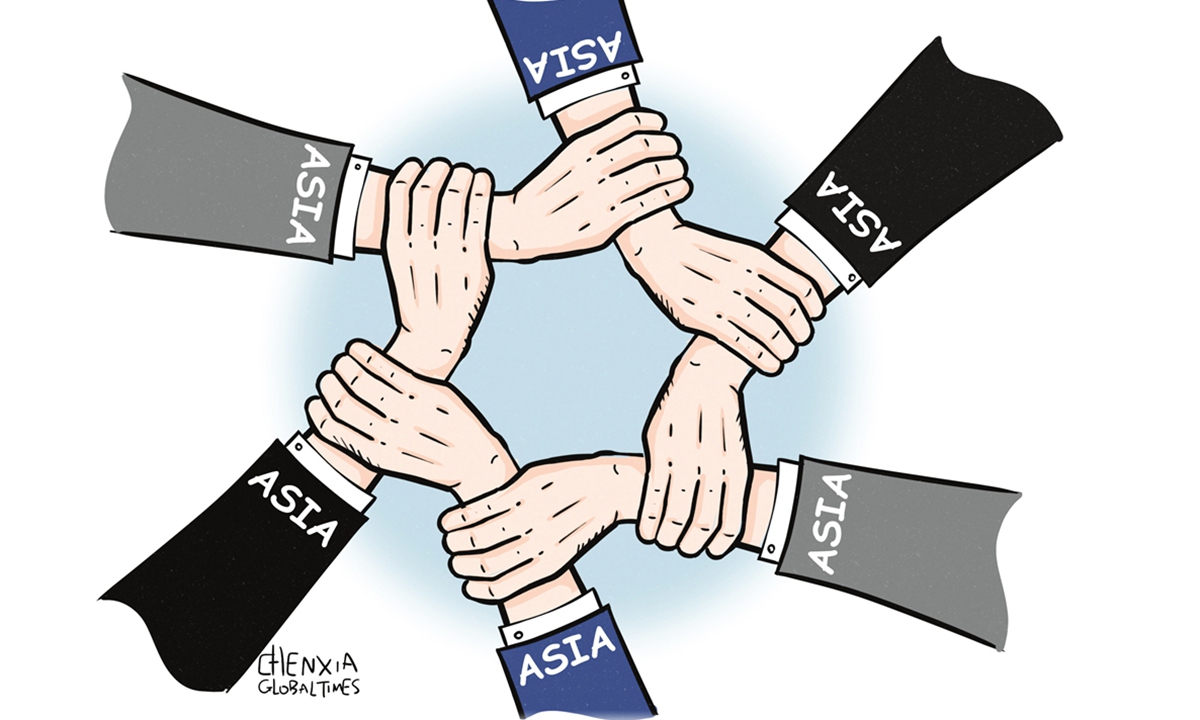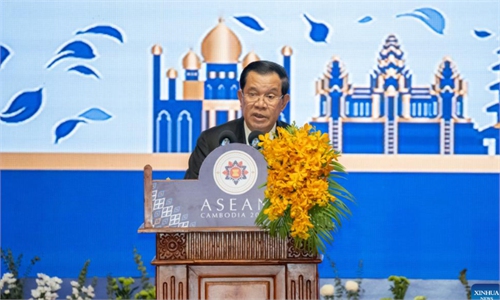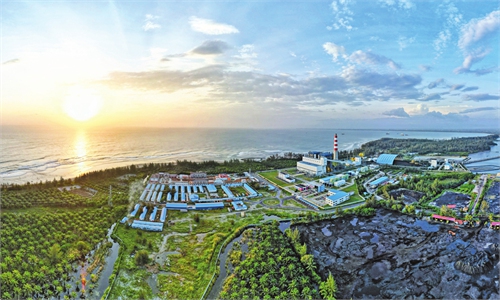
Illustration: Chen Xia/Global Times
Editor's Note:
The world today is far from being tranquil. Facing a choice of the times between solidarity and division and cooperation and confrontation, the international community expects Asia to play a leading role. ASEAN countries are successively hosting three important multilateral meetings including the ASEAN Summit and Leaders' Meetings on East Asia Cooperation, the G20 Summit, and APEC Economic Leaders' Meeting. Focusing on the "Asian moment," the Global Times will invite several Chinese and foreign scholars to discuss how Asian countries can contribute "Asian wisdom" to the world amid unprecedented changes unseen in a century. This is the sixth of this series.
This is a busy month for Asia in general and Southeast Asia in particular. No fewer than three summits of regional and global prominence were and are to be held almost successively. There was the summit of the leaders of the Association of Southeast Asian Nations (ASEAN) held in Phnom Penh, Cambodia. That was followed by the G20 summit in Bali, Indonesia. And soon the leaders of Asia-Pacific Economic Cooperation (APEC) economies will meet in Bangkok, Thailand.
The concentration of these high-level meetings in this part of the world so soon after the easing of the coronavirus pandemic is perhaps a rather apt one. Asia, especially Southeast Asia, remains the vibrant part of the world that has continued to register impressive growth even amidst the economic doldrums brought about by the pandemic.
It is no secret that the agendas of these summits are headlined by revitalization of the economy of the region and by extension the world. The ASEAN summit, for example, started negotiations for ASEAN members and China to upgrade their already quite impressive free trade agreement. ASEAN also firmed up its comprehensive strategic partnerships with the US and India. This sort of tightening the relationship between ASEAN and the major economies of the world aims not surprisingly to enable ever closer trade and investment that could hopefully jumpstart the stuttering regional and global economy.
Some have dubbed these events to be the debut of the "Asian moment," or Asia's coming-out ceremony on a global scale, and quipped that the "Asian century" has finally arrived. Well, taken together, these summits could be viewed as more Asian major players stepping up to the world stage. Indonesia, in particular, has been very assiduous and conspicuous in holding the G20 summit. Over the last year, magnifying the famed Indonesian courtesy, President Joko Widodo has been travelling around the world to essentially hand-deliver invitations for most of the G20 heads of state or government to meet at the legendary resort island of Bali.
And come the time, most of them did, including Chinese President Xi Jinping and US President Joe Biden, who also made use of the occasion to hold their first face-to-face bilateral summit which was previously rendered difficult by the pandemic. The two world leaders made clear the important positions of their respective country to one another, and various channels of communications were to be continued between both sides. The world at large would like to see the US and China engage more constructively with one another, much like they did so well until just a few years ago. That is because a healthy and robust US-China relationship would be beneficial not only to the two largest global economies concerned, but also to many others in an open world.
Going back to Indonesia, as the leading regional power in Southeast Asia, Indonesia has at least for half a century not imposed its will on its neighbours, much to their relief. Now that Indonesia is about to once again assume ASEAN chairmanship, it is expected to shoulder heavier responsibility, not the least in forging consensus among ASEAN members on various strategic issues affecting the region.
A crucial component of the Asian moment or the Asian century will be positive relations between China and Southeast Asia. The two neighboring sides are the leading trading partners of one another, and, as mentioned above, are in the process of upgrading their free trade ties. Building on the already impressive trade and investment ties, such upgrade must involve a shift from the quantitative to the qualitative in the fruits of their collaborations. For example, not only trade of goods, but also trade in services, ranging from education to digital economy, should be emphasised, as both China and Southeast Asia are transitioning into high value-added economic stages. And it would appear that both sides have indeed the determination to steer toward this mutually beneficial direction.
Another characteristic of the Asian moment could perhaps be gleaned from the perspective of the China-Malaysia relations, to take but one example. It is open knowledge that Malaysia and China have territorial disputes over the South China Sea. But instead of blowing loud trumpets over these seemingly insurmountable disputes, the two sides prefer to put their differences on back burner or at least discuss them bilaterally in a low-key manner, while their tremendous amount of trade volumes balloon. The people-to-people interactions between the two countries are also significant, with tens of thousands of students studying in each other's universities. This would undoubtedly contribute to better mutual understanding between the peoples, and is a positive example for others to emulate.
The Asian moment is not and must not just be a laurel of glory to be rested upon, instead it must be a duty to be diligently hoisted and fulfilled by all in Asia. Only then would peace and prosperity be achieved in common.
The author is a senior fellow at the Singapore Institute of International Affairs. opinion@globaltimes.com.cn


